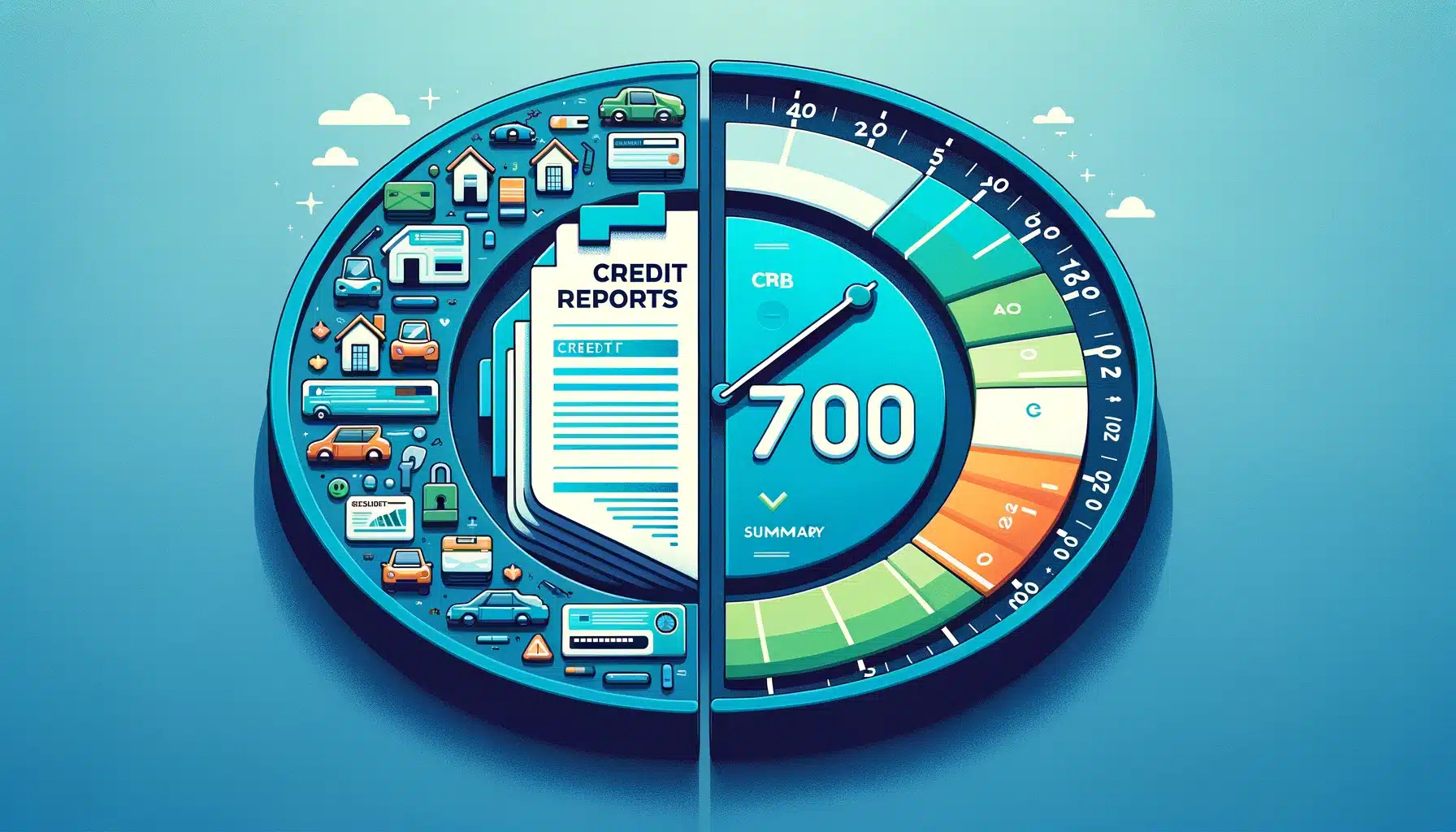Editorial Note: We earn a commission from partner links on Doughroller. Commissions do not affect our authors’ or editors’ opinions or evaluations. Learn more here.
Recently I helped a family member get a copy of their credit report and credit score. One thing they found confusing was just what the difference was between the two.
Contrary to what many believe, a credit report and a credit score are not one and the same. A credit report is just that, a detailed “report” of your credit history. And a credit score is an actual number. And how you get your credit scores and credit reports (and how much they cost) are also different. Here’s an up-close look at both and how they relate.
Credit Reports vs. Credit Scores
| Credit Reports | Credit Scores | |
|---|---|---|
| What are they? | Summary of your credit history as maintained by the three major credit bureaus: Equifax, Experian, and TransUnion | A number based on the information in your credit reports. For FICO credit scores, the range is 350 to 850. |
| Why three? | Each credit bureau likely has slightly different information about your credit history. For example, not all creditors report to all three credit bureaus. | Because each credit bureau has slightly different information, they produce different FICO scores. |
| Are they free? | Yes, you can get a free copy of your credit report from each credit bureau once a year. | It depends. The credit bureaus do not offer scores for free, but some credit card issuers and other financial institutions do. |
| How do you get them? | www.annualcreditreport.com | Several places, including FICO, the credit bureaus and various financial institutions |
Credit Reports
A credit report is a detailed view of how you have historically used credit. It is used by anyone who is thinking of lending you money to assess how responsible you are with things like credit cards, mortgages, car loans, and so on.
Your credit report contains information such as the following:
- Identifying Information: Your name, address, Social Security number, date of birth and employment information are part of your credit report and are used to identify you. While this information is not used to calculate your FICO score, it’s still important. When you review your credit report, you want to make sure this information is correct, as errors can occur when your identity has been stolen.
- Credit Accounts: From credit cards to mortgages, car loans to school loans, lenders report on each account you have established with them. Information reported includes the type of account (credit card, auto loan, mortgage, etc), the date you opened the account, your credit limit or loan amount, the account balance and your payment history.
- Credit Inquiries: When you apply for a loan, you give the lender permission to get a copy of your credit report. The result is that an inquiry appears on your credit report. The inquiries section contains a list of everyone who accessed your credit report within the last two years. The report you see lists both “voluntary” inquiries (also called hard pulls) resulting from your own requests for credit, and “involuntary” inquires (or soft pulls), which occur, for example, when a lender pulls your credit history to offer a pre-approved credit card.
- Public Record and Collection Items: Credit reporting agencies also collect public record information from state and county courts, and information on overdue debt from collection agencies. Public record information includes bankruptcies, foreclosures, suits, wage attachments, liens and judgments.
In short, your credit report contains a history of how you have handled credit, and generally represents most of the information a creditor needs to determine whether you are a good risk or a bad risk.
Equifax, Experian, and TransUnion are the big three credit reporting companies. You can request a free credit report every 12 months from any of these national credit reporting agencies, and annualcreditreport.com makes it extremely easy to do so. This way, you can make sure all the information on file is correct and that there are no accounts listed that you did not initiate.
Credit Scores
Credit scores assign a numerical value to the above information. There are many credit scoring formulas. The numerical value ranges from 300 to 850 for scores based on the FICO formula. The higher the score, the better. This tells lenders that if they lend you money, you’re “good for it.”
The rates you receive on mortgages and other loans will also be lower the higher your credit score. Your credit score can also impact the cost of insurance, getting a job, and obtaining security clearance, just to name a few.
Tool Tip: You can get your credit score from Experian for as little as $1 when you enroll in a free trial of Experian’s credit monitoring service.
The most commonly used credit score is one created by Fair Isaac Corporation, called a FICO score. Equifax, Experian, and TransUnion have their own version of a credit score, but FICO is the industry standard.
Your FICO score is determined based on the following data:
- Payment History = 35%
- Amounts Owed = 30%
- Length of Credit History = 15%
- New Credit = 10%
- Types of Credit Used = 10%
There are several ways to get your credit score for free, which you can check out here.


